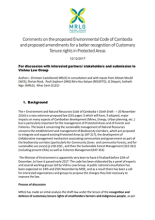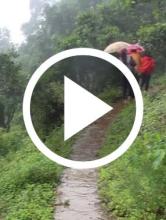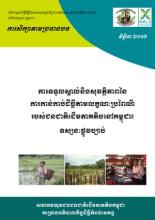Land Library
Bem-vindo à Biblioteca do Land Portal. Explore nossa vasta coleção de recursos de acesso aberto (mais de 74.000), incluindo relatórios, artigos de revistas científicas, trabalhos de pesquisa, publicações revisadas por pares, documentos jurídicos, vídeos e muito mais.
/ library resources
Showing items 235 through 243 of 303.The « Environment and Natural Resources Code of Cambodia » (Sixth Draft – – 20 November 2016) is a very extensive proposed law (535 pages !) which will have, if adopted, major impacts on many aspects of Cambodian development (Mines, Energy, Urban planning, etc..) but is particularly important for
This short video examines an initiative by Earth Systems to develop a tea sector dialogue platform that brings together key stakeholders in the value chain to jointly examine challenges and opportunities for the development of a more equitable and sustainable tea sector in Laos.
The scholarly debate around ‘global land grabbing’ is advancing theoretically, methodologically and empirically.
Across the tropics, development banks and conservation donors are investing millions in property mapping and registration projects to improve accountability for deforestation.
Case studies of social-ecological landscapes that consider local, spatially explicit land cover changes are necessary for the development of generalised knowledge on deforestation.
The relationship between forests and people is of substantial interest to peoples and agencies that govern and use them, private sector actors that seek to manage and profit from them, NGOs who support and implement conservation and development projects, and researchers who study these relationsh
Data compatibility and system interoperability are fundamental for crosswalks and collaboration between domains. The most frequently used references for information sharing are time and location.
The construction of consistent time series of land use presents a key challenge when accounting for elective land use-based activities under the Kyoto Protocol (wetland drainage and rewetting (WDR), cropland management (CM) and grazing land management (GM)), in which current land use-driven green
This short thematic study challenges the assumption that the legal framework to recognize and protect indigenous peoples’ (IP) customary lands is adequate and that the challenge lies in its implementation.




